Unmasking Public Perception of Generative AI: A Glimpse Into the Future
The rapid advancement of artificial intelligence (AI) technologies, particularly generative AI, has been nothing short of revolutionary. Technologies like ChatGPT, ChatSonic, and the OpenAI Playground have paved the way for an entirely new form of interaction, proving themselves to be intriguing to some, mystifying to others, and all too alien to a considerable slice of the population.
In order to uncover what the public really thinks about this emerging tech phenomenon, we conducted a survey among 1,000 Americans aged 18+ who said they were aware of generative AI. We also developed a topline report to detail the key findings and trends. The report reveals intriguing insights into how generative AI is perceived, including its potential benefits, fears about its misuse, and the level of understanding that the general public currently has.
You can download the Topline Report using the form to the right, and read more insights below.
A Curious Introduction
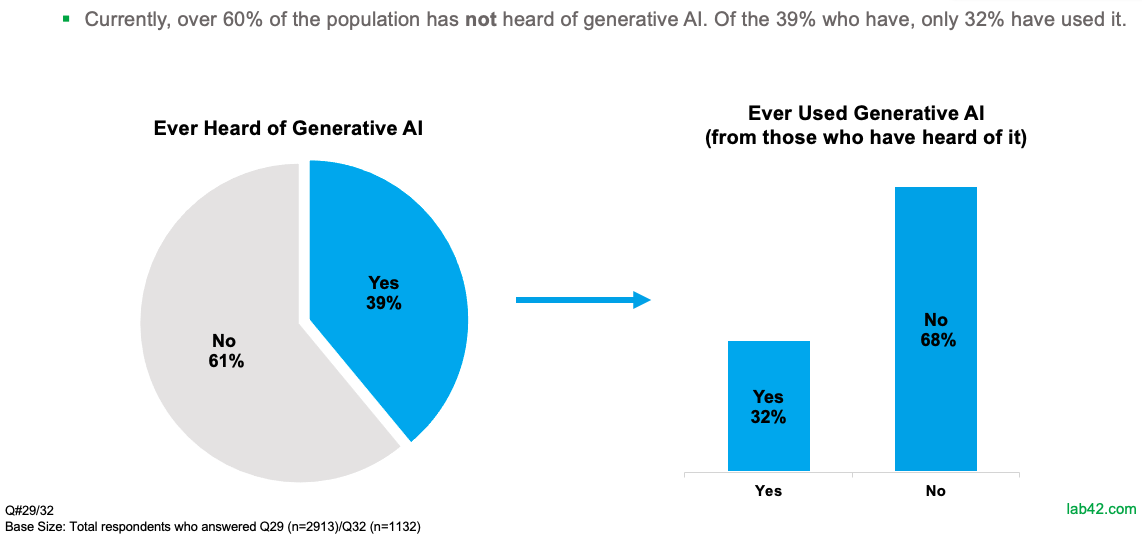
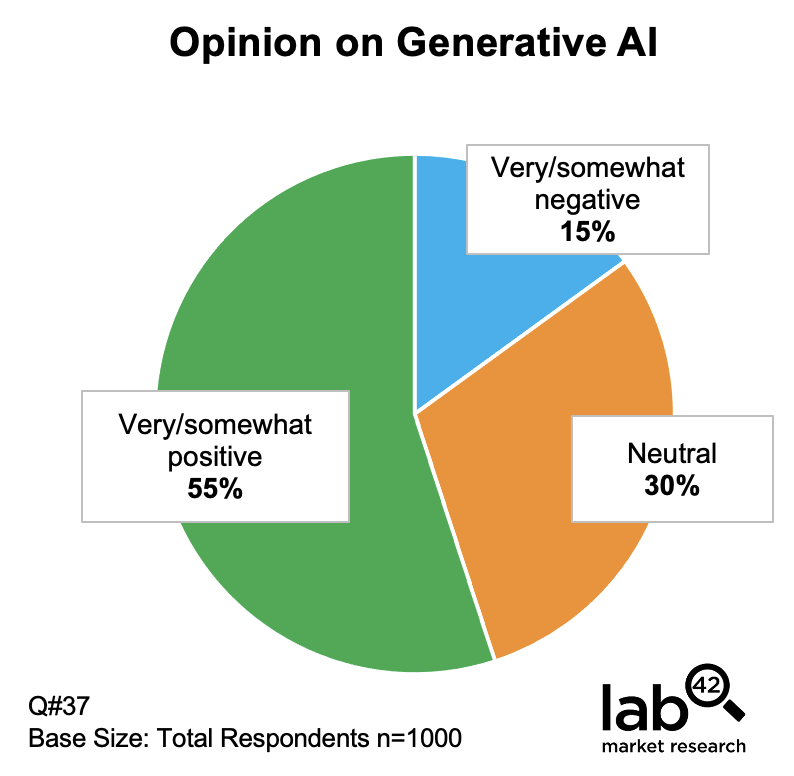
Our research found that only 40% of respondents had heard of generative AI. Out of those aware, about a third have tried their hands on it, mostly driven by curiosity, for seeking information, or for pure entertainment. Interestingly, the use of generative AI in professional settings hasn't caught on as quickly, with very few claiming to have leveraged it for work.
Those who haven't yet experienced generative AI cited lack of knowledge about how to use these technologies as a primary barrier. But this group of generative AI holdouts may quickly shrink in size, as more than half expressed openness to future use, showing a promising trend towards acceptance and adaptation.
Feeling Comfortable, or Not?
Despite the growing curiosity and potential usage, generative AI remains a mysterious domain for most people. Even those who have engaged with it don't fully understand its inner workings. However, this doesn't seem to hinder their comfort or trust in the technology, with slightly more than half of respondents having a positive opinion and faith in the information it provides.
Yet, it's not all smooth sailing. People are hesitant about using generative AI for making life-altering decisions, especially those related to medical and financial matters. This indicates the need for improved transparency, accuracy, and accountability in AI systems before they can be entrusted with such crucial roles.
For those who have previously used generative AI, comfort levels and positive opinions tend to be higher. But concerns around its rapid progression and potential access to sensitive information underline the need for clear, user-friendly privacy policies and secure data handling practices.
The Double-edged Sword of Impact and Ethics
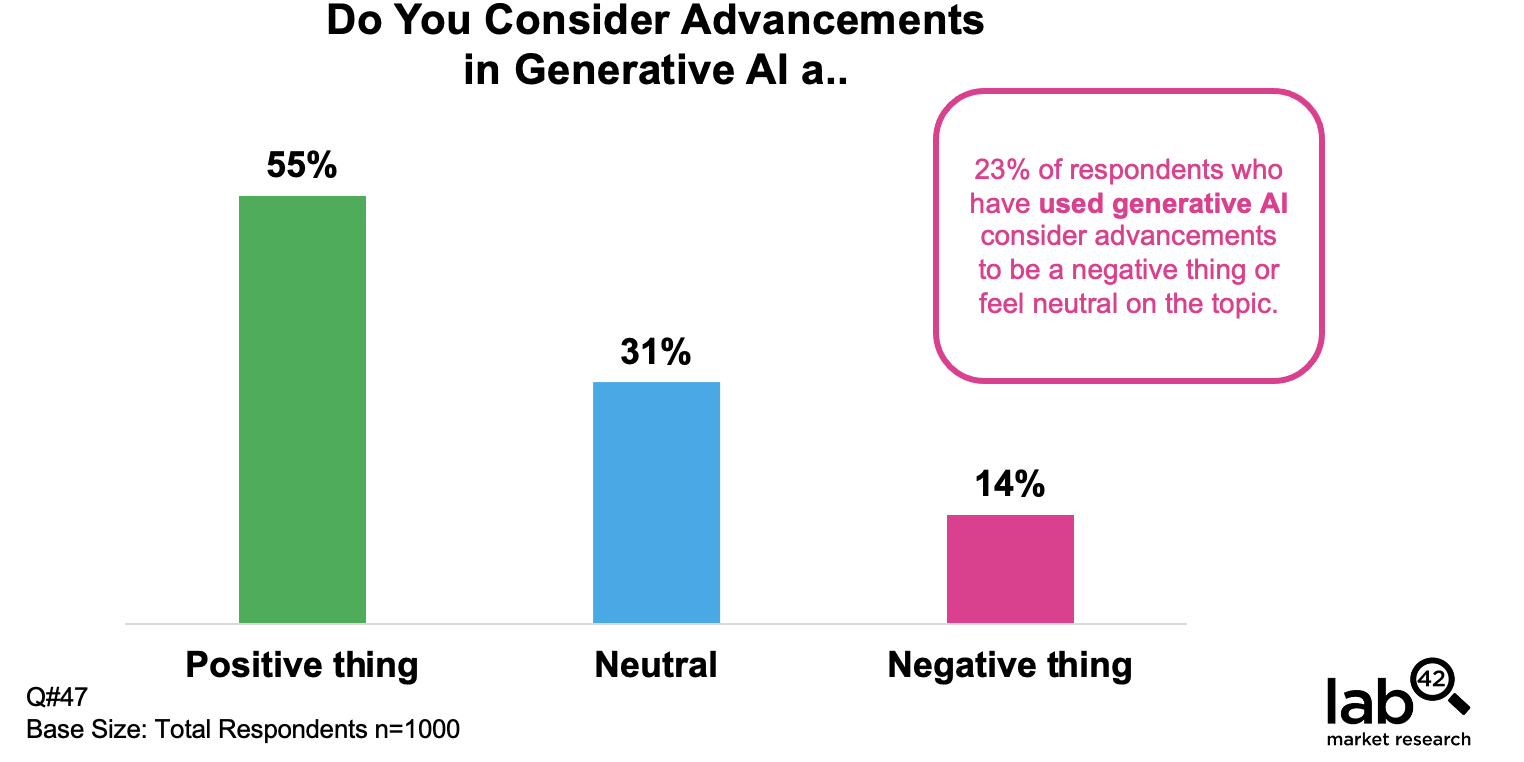
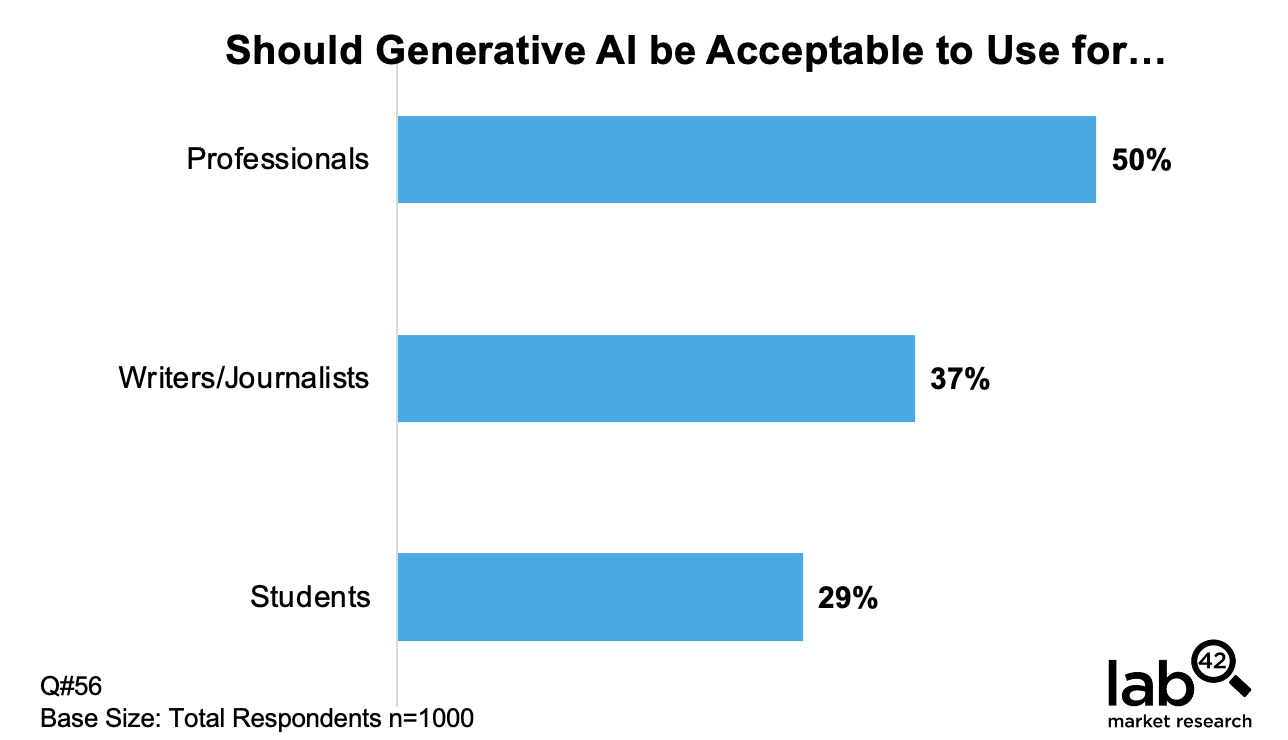
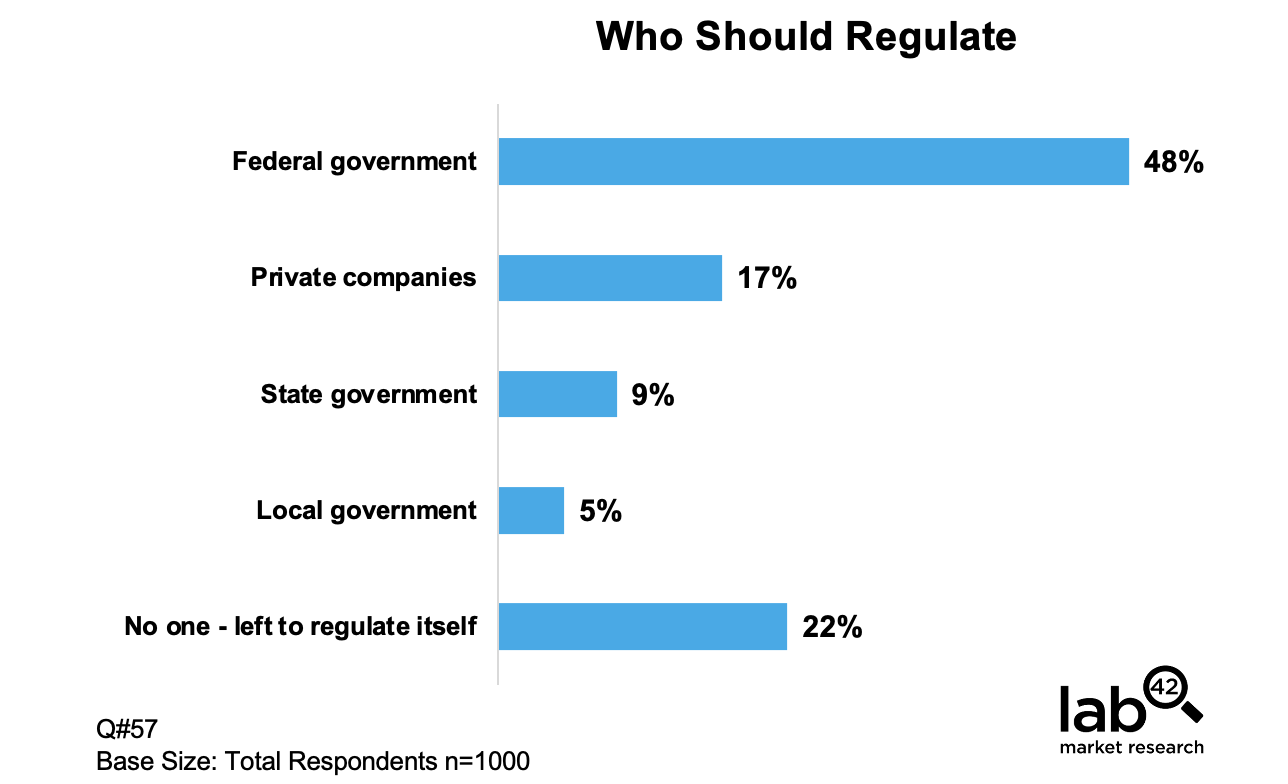
The public isn’t blind to the dual-faced nature of generative AI. They recognize the potential benefits it can bring to their lives and work, while simultaneously being aware of its risks. Concerns range from the spread of false information to privacy infringements, and threats to job security. This implies a delicate balancing act that the AI industry must perform to reap the benefits of AI, while also mitigating its potential harms.
And what about ethics, you ask? Interestingly, public sentiment seems to be shifting. While respondents agree that professionals can make use of generative AI for their work, they find it unacceptable for writers, journalists, and students. This may reflect concerns around AI's potential to compromise human creativity and authenticity, or to enable plagiarism or misinformation.
Across the board, a vast majority of respondents agree that regulation is needed. Whether to ensure responsible use, protect privacy, or prevent misuse, there's a strong call for guidelines and oversight to keep the AI genie under control.
What Lies Ahead?
The survey results offer a fascinating insight into public opinion, but they also point to the implications and future trajectory of generative AI. As awareness grows, so will usage. Thus, the need for educational resources and user-friendly interfaces is paramount.
The mixed comfort levels highlight the importance of building trust through transparency and robust data privacy measures. There’s a need to ensure that AI systems are not only accurate but also understandable and controllable by their users.
While the public recognizes both the benefits and risks of generative AI, it’s clear that a cautious approach is needed to minimize harm. This entails investing in research to mitigate AI's risks, and engaging with a broad range of stakeholders to establish ethical guidelines and regulations.
As generative AI continues to evolve, it's essential to consider these public sentiments and expectations. After all, the future of AI isn't just about technological progress—it's about people, their needs, their concerns, and most importantly, their trust.


